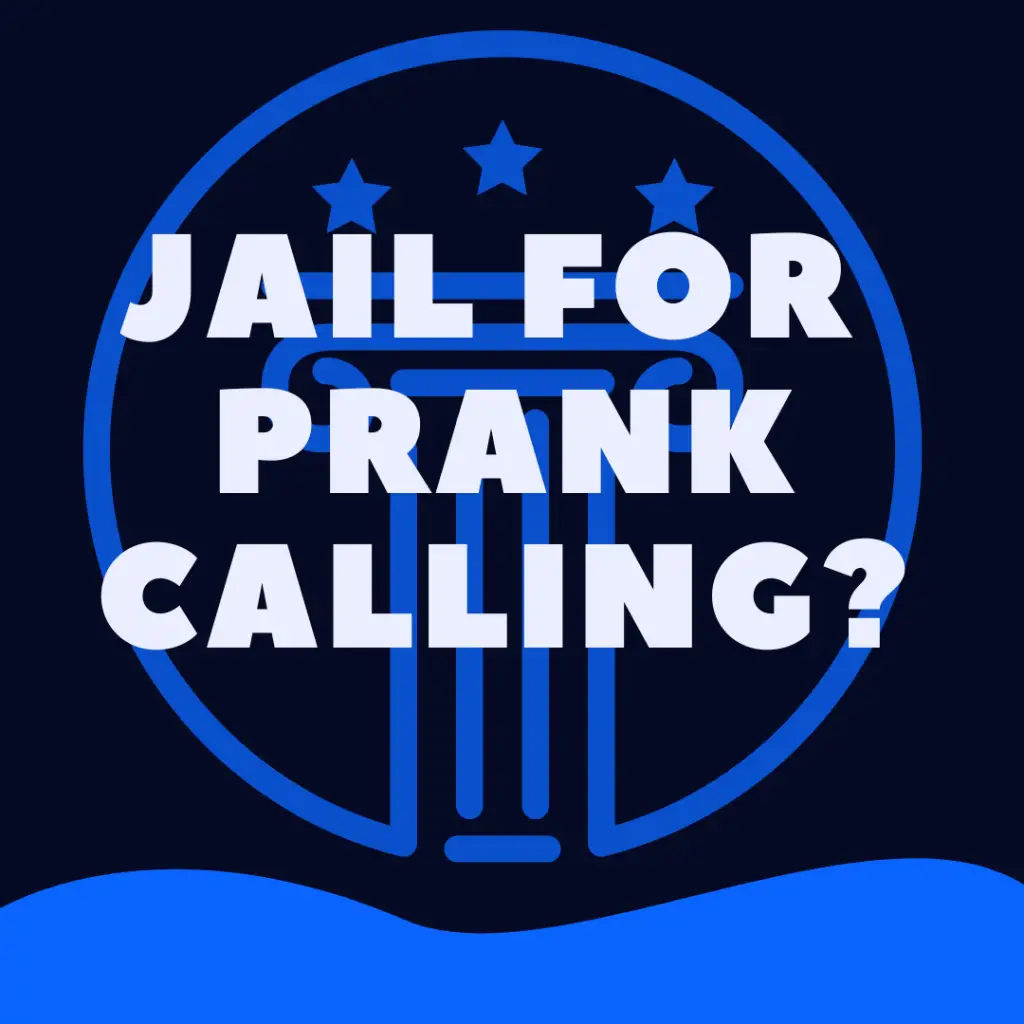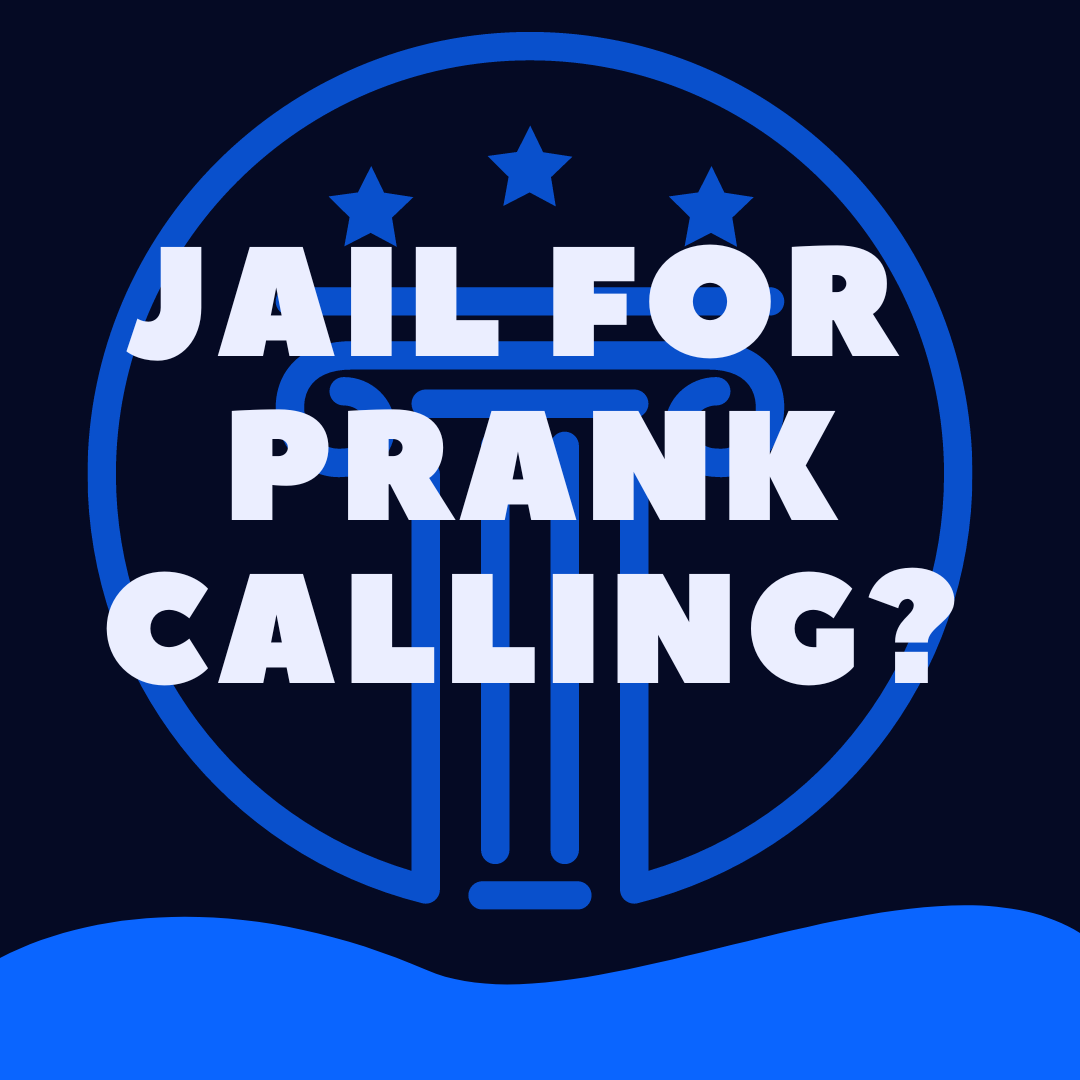Answer: Depending on the circumstances, prank calling can be considered illegal in Alaska.
It might be considered criminal harassment and can result in serious penalties.
In the article that follows, we’ll explain in more detail.
Is Prank Calling Illegal In Alaska? (Explained)
Disclaimer
The contents of this web page are for informational purposes only, and nothing you read is intended to be legal advice. Please review our disclaimer about law/legal-related information on this website before taking action based upon anything you read or see.
What Is Harassment?
Harassment is intentional or reckless conduct involving repeated or continued unwanted communications that serve no legitimate purpose and cause substantial emotional distress.
The law prohibits harassing people or entities because of their race, color, religion, sex, or national origin.
There are also laws to ensure that employees are allowed to have a safe and healthy work environment free from harassment.
There are different penalties for different forms of harassment, and what seems like a silly prank can turn into something very serious, very quickly.
When Pranking Is Illegal
Several situations make pranking illegal, especially when the prank call annoys, threatens, or annoys people.
Pranking is also considered illegal when it results in disorderly conduct or when it’s obscene.
Prank callers are often prosecuted when there is already a restraining order in place that is supposed to prevent the calls from occurring.
Sometimes, the prank caller decides to record the call without the recipient’s permission, which may violate the state’s prohibition against wiretapping (though these laws vary from state to state).
Alaska is also in the process of making prank calls made to emergency numbers such as 911 a specific crime as well.
Prank Calling Businesses
There are specific laws to prevent businesses from being abused or harassed via phone lines.
If an individual prank calls a business, such as making false order, the call may incur the civil liability for the order, and criminal liability for the damage caused to the business.
Business constitutes the largest victims of prank calls because accessing their phone lines is no longer a challenge.
Several episodes of The Simpsons shows character Bart Simpson calling a local tavern to cause the bartender to unknowingly shout out a funny or maybe obscene name.
Other pranksters will call and order pizzas for delivery to a recipient that didn’t want the pizza and may not have the money to pay for them.
While these pranksters get away with these calls on television and social media, in real life these caller get in trouble if the business reports the calls to the police.
Prank Calling 911
Prank calling 911 is one of the situations most likely to result in prosecution efforts.
The state of Alaska is in the process of enacting a specific law that would it illegal to repeatedly call 911, to engage in automated ‘call spoofing,” and make abusive 911 calls.
While dispatchers are handling a prank caller, they may be unable to quickly assist a citizen who actually needs emergency help.
Further, the prank call could result in the dispatch of an ambulance, fire truck, or police car (or a large combination of all of the above) to a specified location.
These fire trucks, ambulances, and police officers would also be unavailable to respond to a citizen who actually needs emergency help.
A felony conviction could result in jail time and/or a significant fine, depending upon the criminal history of the offender and the circumstances of the incident.
If the emergency response results in serious property damage, bodily injury, or even death, the prank caller’s potential consequences in the court would likely be much more serious (meaning more jail time, and more fines).
Prank Calls Can Be a Hate Crime
A prank call may become a hate crime when it focused on or is motivated by the race, color, religious, national origin, orientation, gender identity, or ability.
This could elevate the seriousness of the prank call offense to a more serious felony.
A Recorded Prank Call May Be Illegal Wiretapping
In many cases given the existence of available technology, prank callers record the call to make fun of the victim by sharing it on social media.
They record the calls without the other party’s consent.
Depending on the state(s) that the parties are situated in, the act could be considered illegal wiretapping and could result in fines and jail time.
The ‘sharing’ of the call on social media (especially if it goes viral and identifies the victim) could elevate the seriousness of the consequences for the offender, and also open up the offender to a civil lawsuit for damages suffered by the victim.
Prosecution in Alaska
The state of Alaska has various laws applicable in prosecuting prank callers.
Prank calls could result in domestic violence, stalking, disorderly conduct, or harassment charges.
The charges could be a felony or a misdemeanor, depending on the circumstances.
The nature of the incident will determine whether the charges are a felony or misdemeanor (or multiple of one or both).
For instance, if you prank an ex-wife or husband, the felony may implicate domestic violence law.
Hence, the next time you plan to have fun pranking someone, it’s best to understand the consequences because the authorities always have a way of finding the callers.
Will You Go To Jail For Prank Calling?
While jail is a possibility in almost every misdemeanor and felony case, whether the defendant actually goes to jail is much more nuanced.
Offenders do not go to jail automatically for breaking the law every single time.
Instead, during sentencing process, many factors are considered, such as:
- how bad the crime was
- how badly anyone was hurt
- how much property was damaged
- whether self-defense was involved
- whether the offender is prepared to pay for damages
- whether this is a first offense
- the most recent previous criminal conviction, and how many previous convictions there are
- whether the offender is remorseful
- whether jail will cause the offender to lose his job or place in school
- whether the offender is prepared to enter substance abuse treatment
- the mental and physical health of the defendant
The judge will make the decision as to whether jail is appropriate in the circumstances, or whether the offender would be better suited to performing community service or other service under the eye of the jail, such as trash clean up/road crew.
The parties (prosecutor and defense) may even negotiate a sentence that seems appropriate and jointly recommend it to the court for consideration.
If an offender is before the court for a first offense, and did no other damage to the community, probation without an additional jail sentence for the offense is more likely.
If an offender is before the court for multiple offenses, did damage, put other vulnerable individuals in danger, and shows no remorse for his actions, a jail sentence is more likely.
However, it is impossible to say with any certainty whether an individual would go to jail for an offense without knowing the entire fact pattern of the case.
Need Help?
If you have been charged with crimes, or you are worried that you will be, conferring with an attorney early on is recommended.
Even if you don’t think you’ll need a lawyer or be able to afford a retained lawyer in your case, early consultation with an experienced Alaska criminal defense lawyer could prevent you from making your case worse and give you guidance about what to do next.
Wrap Up
Want to learn more about the courts and our justice system?
Browse our free legal library guides for more information.


